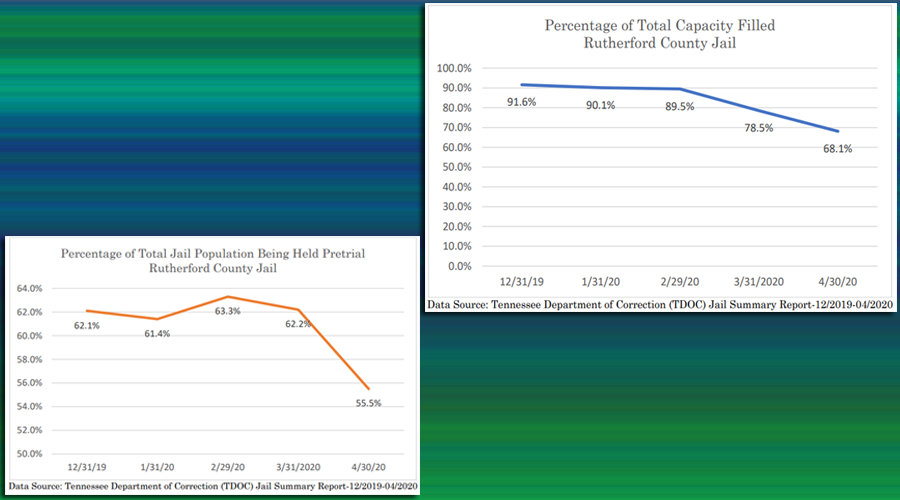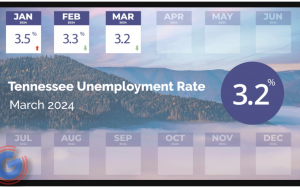The American Civil Liberties Union of Tennessee released a comprehensive, statewide report that illustrates the cumulative impact of varying efforts to decarcerate local jails by advocates and stakeholders across the criminal justice system in the wake of the COVID-19 pandemic. The report highlights changes in jail populations in every county in the state from December 2019 through April 2020.
"Our report sheds light on the fact that a quarter of Tennessee's jails were still operating at 75 percent of their capacity or above at the end of April, including nine that were at or even over their full capacity. Clearly, we still have a long way to go to protect people living and working in Tennessee jails and our failure to do so will disproportionately hurt rural communities and communities of color in our state," said Hedy Weinberg, ACLU-TN executive director.
"At the same time," Weinberg continued, "our report also illustrates that many Tennessee counties have successfully and safely reduced the number of people in their jails by taking steps such as releasing those incarcerated simply because they cannot afford to post bail and increasing the use of citations over arrests – illustrating a path toward reducing our costly reliance on incarceration during the pandemic and beyond.”
The report includes data on changes in the total jail population and the pretrial population for every Tennessee jail. Key findings in the report include the following:
- From December 2019 to April 2020, 64 of Tennessee's 120 facilities decreased their jail populations.
- Jails in Clay, Cocke, Hancock, Morgan and Trousdale counties all decreased their jail populations by 100 percent or more, though all were operating at well over 100 percent capacity at the start of the period covered by the report.
- Thirty jails in Tennessee, or a quarter of all facilities, remained operating at or above 75 percent of their total capacity as of the end of April 2020.
- Nine facilities remained operating at or above 100 percent capacity as of the end of April 2020.
- The number of people in jails in four counties – Bedford, Hardeman, Houston and Marshall – either remained the same or even grew during the first four months of the pandemic.
- Bedford County Jail, which was already filled to nearly 133 percent of its capacity in December, actually increased its capacity between December and April to 139 percent.
According to the report, differences in jail population and decarceration from county to county can be driven by multiple factors, including differences in the percentage of people in a jail who are behind bars pretrial, discretion of local law enforcement in making arrests, reductions in court operations and variations in local court plans to reduce jail populations, and differences in prosecutors' decision-making from judicial district to judicial district.
The report also provides recommendations for further reducing the population of Tennessee jails to reduce the spread of COVID-19, such as the release of medically vulnerable people, police reducing arrests for minor offenses, prosecutors declining to prosecute arrests for low-level charges and eliminating prosecution for technical violations of probation, and courts ordering pretrial release without conditions in all cases where release poses no risk to safety.
The report is available at: https://www.aclu-tn.org/












